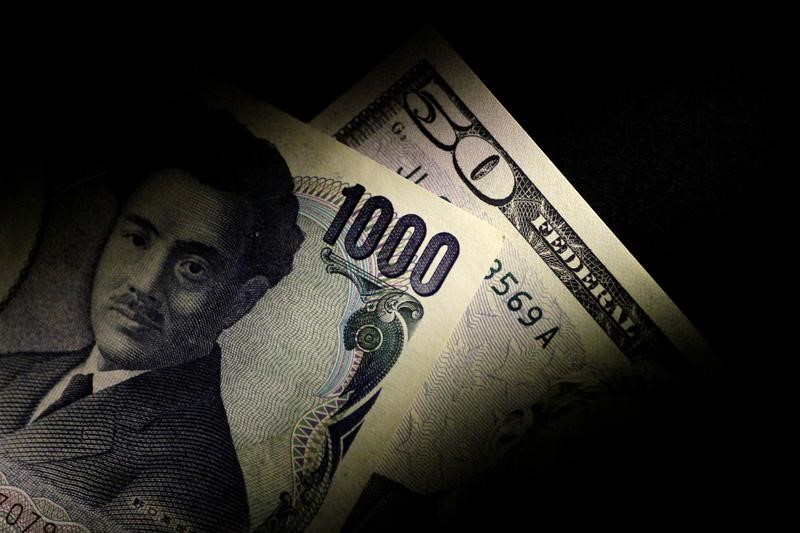By Peter Nurse
Investing.com - The U.S. dollar rose in early European trade Thursday on growing expectations of further aggressive interest rate hikes by the Federal Reserve, with the Japanese yen being particularly hard hit.
At 03:15 ET (07:15 GMT), the Dollar Index, which tracks the greenback against a basket of six other currencies, traded 0.4% higher to 109.040, not far removed from the two-decade high of 109.48 seen at the start of the week.
Expectations for a substantial U.S. rate hike at the Federal Reserve meeting later in September are rising on the back of solid economic data, as well as continued hawkish comments from Fed officials.
Wednesday’s ADP employment release showed a slowing in the pace of hiring in the U.S. private sector in August, but the 132,000 gain was still a healthy figure. The earlier JOLTS report on job openings pointed to continued strength in the labor market, which puts Friday’s official jobs report firmly in focus.
Expectations of another large hike have grown since Fed Chair Jerome Powell declared last week that bringing price pressures down toward their 2% target was the Fed’s “overarching focus.”
Policymakers have continued this theme, with Cleveland Fed President Loretta Mester stating Wednesday that the central bank needs to raise its benchmark rate above 4% by early next year, from the current target range of 2.25%-2.5%, and leave it there for some time to help cool inflation.
This has resulted in U.S. Treasury yields rising, with the two-year Treasury yield hitting a peak of 3.51%, the highest since late 2007.
By contrast, Japanese officials have made it clear their interest rates are going nowhere anytime soon. The rate differentials between Japan and the U.S. resulted in USD/JPY climbing 0.3% to 139.38, just below the 24-year high of 139.69 seen in early Asia trade.
Elsewhere, EUR/USD dropped 0.3% to 1.0023, suffering from the strong dollar, but remaining above parity as the European Central Bank is also widely expected to lift interest rates by a hefty 75 basis points next week after Eurozone CPI climbed to a record 9.1% in August.
“Gas prices and European sentiment are about to face a major stress test as the Nord Stream pipeline gets shut for maintenance,” said analysts at ING, in a note. “All this warns against getting too excited about a recovery in European currencies at this stage.”
GBP/USD fell 0.3% to 1.1583, just above a new 2-1/2 year low of 1.1569 as the U.K. economy heads towards what the Bank of England said will be a likely prolonged recession.
Additionally, former Bank of England Deputy Governor Charlie Bean said Wednesday that investors are starting to see U.K. assets as more risky because of the signals coming from likely new Prime Minister Liz Truss about plans to cut taxes and raise spending.
USD/CNY rose 0.2% to 6.9015, with the yuan hit by a private survey showing that Chinese manufacturing activity shrank in August, a similar result to Wednesday’s government release.
